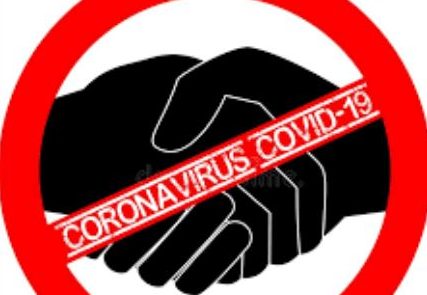Melvin Durai
I don’t attend church often, but when I do, I enjoy some parts of the service more than others. In almost every service I’ve attended, at least a few minutes are dedicated to shaking hands. The minister says something like this: “Peace be unto you! You may now greet each other with peace.”
Members of the congregation stand up and shake hands with everyone around them, smiling and saying, “Peace beunto you!” Some worshippers get carried away and glide all around the church with big smiles on their faces, so eager to spread peace, not to mention the germs on their hands.
I’ve never really enjoyed this portion of the service, partly because I’m not an extrovert. I wouldn’t call myself an introvert either—I’m somewhere in between. I’m willing to shake your hand or smile at you, but not both.
Greeting strangers with a smile and handshake just doesn’t come naturally to me. In fact, there was a period in my life when I deliberately showed up to church a few minutes late, so I didn’t have to shake hands with a dozen people.Of course, at the end of the service, the minister stood at the door to greet me with a handshake as I left. As a result, I developed a personal mantra for church: “Arrive late, escape early.”
Shaking hands in church may not seem like a big deal, but consider this: if only one person in a congregation is carrying a virus, that virus could be passed to the entire congregation through all the handshakes. The possibility of catching viruses isn’t the reason I’ve been somewhat averse to handshakes, but in light of the coronavirus pandemic, I fully support any move by the government to permanently ban handshakes.
We don’t really need to shake people’s hands, do we? We can greet them in so many different ways that don’t involve touching body parts. I’ve seen signs in India that say, “Avoid handshakes. Adopt Namaste.” I’d like to see a sign that says, “Forget the handshake – adopt the headshake.”
I use the headshake all the time to greet strangers that I pass on the road. I just nod or tilt my head slightly and they do the same. We are silently saying to each other, “Peace be unto you.” We are also perhaps saying, “I don’t really know you, why should I shake your hand?”
Namaste is a warmer and more respectful greeting than the headshake, of course, but it requires a little more effort. You have to lift your hands up and put them together. But, on the positive side, you can keep your hands in a Namaste pose for an entire church service and nobody will stretch their hand out to you.
Unless the government passes a law against handshakes, it will be hard for most people to give up the habit. After all, human beings have been shaking hands with each other for thousands of years. Nobody knows exactly how it all started, but there’s a theory that in ancient times, extending your hand was a way of showing a stranger that you weren’t carrying a weapon. It was a way of saying, “I come in peace.” The stranger would extend his hand, too, and eventually someone got the wise idea of putting the two extended hands together.
Most people are quite gentle when they shake your hand, but every now and then, you’ll run into a man who likes to demonstrate his strength by squeezing your hand so hard, your fingers hurt for days. Such men are not going to be happy if handshakes are banned and they have to resort to Namaste. You can’t show your physical strength through Namaste, but you can show your humanity.

